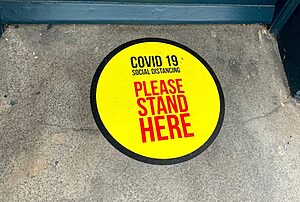In brief
- The Government is reluctant to discuss co-governance because it means granting political power to Māori based on race.
- Polls show that those who understand co-governance proposals reject them.
- It’s questionable most Māori even want co-governance.
- Regular people are picking up the debate where the Government has failed to do so.
The Government refuses to publicly debate co-governance
The Government’s handling of co-governance fits the definition of a conspiracy of silence: An agreement to say nothing about an issue that should be generally known about.
In 2017, Labour campaigned on promising to be the most transparent government in New Zealand’s history, but proceeded to push co-governance in its various forms, in a manner which many perceive is anything but transparent.
Despite unprecedented co-governance measures embedded in the Water Services Entities Act (passed under urgency), as part of Three Waters, former Prime Minister Jacinda Ardern rarely spoke about it. The current PM, Chris Hipkins, doesn’t even want to discuss it.
What is co-governance? Depends who you ask

Co-governance lacks a formal definition because the Government refused to bring legislation forward to define it. The Minister for Māori Development, Willie Jackson, knew that he wouldn’t have support from his party, so it’s been shelved for now.
Democracy Action defines it this way: A shared governance arrangement – with representatives of iwi on one side, and representatives of central and/or local government on the other, each side having equal voting rights at the decision-making table.
But there doesn’t need to be a formal definition.. Anything affording Māori rights that are not democratic is objectionable ‘co-governance’ to many
The Government claims co-governance stems from an obligation to honour the Treaty of Waitangi “principles”, but there is no general agreement on what those principles are. They’re not mentioned in the Treaty itself. They’ve been formulated after the fact.
The bottom line is that the Government is granting political powers based on race (including near dictatorial powers over the delivery of water services), which is antithetical to democracy. It’s no wonder they’re reluctant to discuss it.
Co-governance is Labour’s sacred cow
In his reelection efforts, Hipkins has compromised on key policies to the point many are asking if Labour has any principles at all. However, co-governance remains a part of Three Waters, the Resource Management Act, electoral reform and countless other areas. It’s being pushed aggressively, but the Government has no interest in debate.
Fortunately for the ruling Labour party, co-governance is rarely mentioned in polls that show cost of living, crime, the environment, etc. listed as being the most important to Kiwis.
Dumping co-governance elements from Three Waters, for example, could bring a much needed bump in the polls, but Hipkins chooses to stand pat. Why?
Meanwhile, ACT is the fastest growing party in New Zealand and the number one issue for its supporters is putting a halt to co-governance arrangements. Polling suggests ACT supporters are also the most likely of any party’s supporters to have a firm understanding of co-governance.
Co-governance is fuelling division
It’s questionable if most Māori even want co-governance. This makes it all the more tragic that almost half the country feel race relations are getting worse according to a recent 1News Varian poll. Anger is building not just to the Government’s insistence on race-based policies, but also for failing to inform the public of their agenda.
People, left to piece together the truth of the enormous changes they are seeing, are called racists. Presumably the name callers are in favour of co-governance. But couldn’t there just be a reasoned discussion?



















